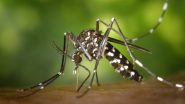Ever feel like that health news is fast-paced, overwhelming and hard to decipher? We feel too. When it comes to mental health, there is no shortage of information online. The world has already stigmatised the mental health conditions so much that we do not even want to come out and clarify our many doubts. Many of us have colleagues, friends, family, and role models with depression or anxiety issues who struggle to decipher the facts from the fiction. We answer some of the most common queries around mental health.
Are Depression and Anxiety Real Illnesses?
While the symptoms of depression may be painful to recognise, depression and anxiety disorders areas severe medical condition. People suffering from these mental health conditions have physical differences and hormone imbalances in their brain which determines the severity of the disease. Categorising depression or anxiety as a matter of character only belittles how depressed people feel and keeps them from seeking help. Managing Mental Health with Yoga Amid COVID-19.
Are Mental Health Conditions a Sign of Weakness?
This false information around mental health condition is the reason why many people choose to suffer in silence rather than seeking help. Depression and anxiety are complex mental disorders that affects a person psychologically, socially, and biologically. Although the exact cause of these disorders is still unknown, there are numerous scientifically explained hypothesis behind what the cause of such symptoms could exactly be.
Is Depression All in Your Head?
Depression is synonymous with emotional symptoms, but the condition can have many physical effects too. Many people with depression find themselves coping with physical symptoms such as constant fatigue, decreased pain tolerance and muscle ache and pains. We often tend to overlook the physical symptoms of depression, thinking that it is only mental. Mental Health Awareness Month 2020: Coping with The Trauma of Extreme Weather Events as Cyclone Amphan Batters Odisha and West Bengal.
Are Antidepressant or Psychosomatic Drugs All You Need to Feel Better?
Depression and anxiety manifests differently in each person, and so popping a pill may not help you feel better. Although doctors mainly prescribe antidepressants, you may need psychotherapy or a combination of other methods to address the symptoms. Combining medication and therapy can be the most effective way to treat the disorders. You may also want to try reiki and meditation and do what suits you best and makes you feel better.
Are Mental Health Disorders Like Anxiety and Depression Hereditary?
While a genetic predisposition increases your chances of developing these conditions, the risk is relatively small. While a few studies suggested that depression and anxiety was hereditary, new studies have questioned the claim. That said, if you have a family history of any of the mental health conditions, make sure that you are aware of the symptoms. Mental Health Awareness Month 2020: Are You Stress-Eating? Here's What You Should Do to Curb Your Mindless-Snacking Tendencies!
Can Talking About Mental Health Conditions Make Them Worse?
While you may feel uncomfortable to talk about your feelings and emotions, you cannot expect it to go away on its own. By abandoning the stigma associated with the mental health disorders, we will be able to initiate a conversation more proactively and helpfully rather than reinforcing negative feelings. You must talk about your feelings out before the disorder becomes severe.
Just remember mental health is just as important as physical health. You are not alone in your struggles; there are medical professionals and services out there to help!
(The above story first appeared on LatestLY on May 27, 2020 01:25 PM IST. For more news and updates on politics, world, sports, entertainment and lifestyle, log on to our website latestly.com).













 Quickly
Quickly





















